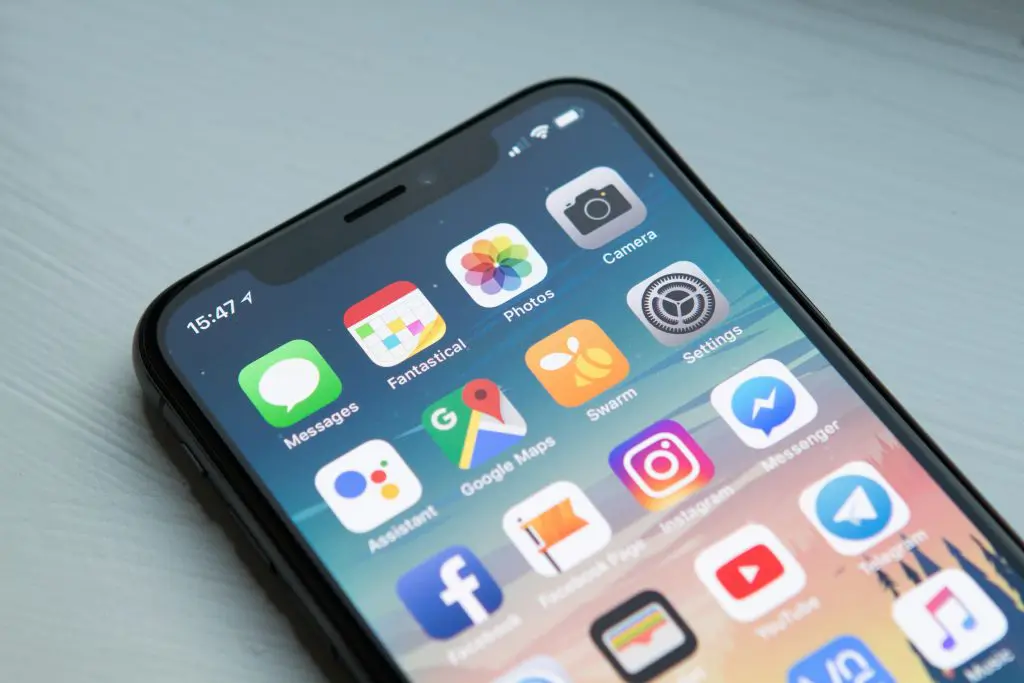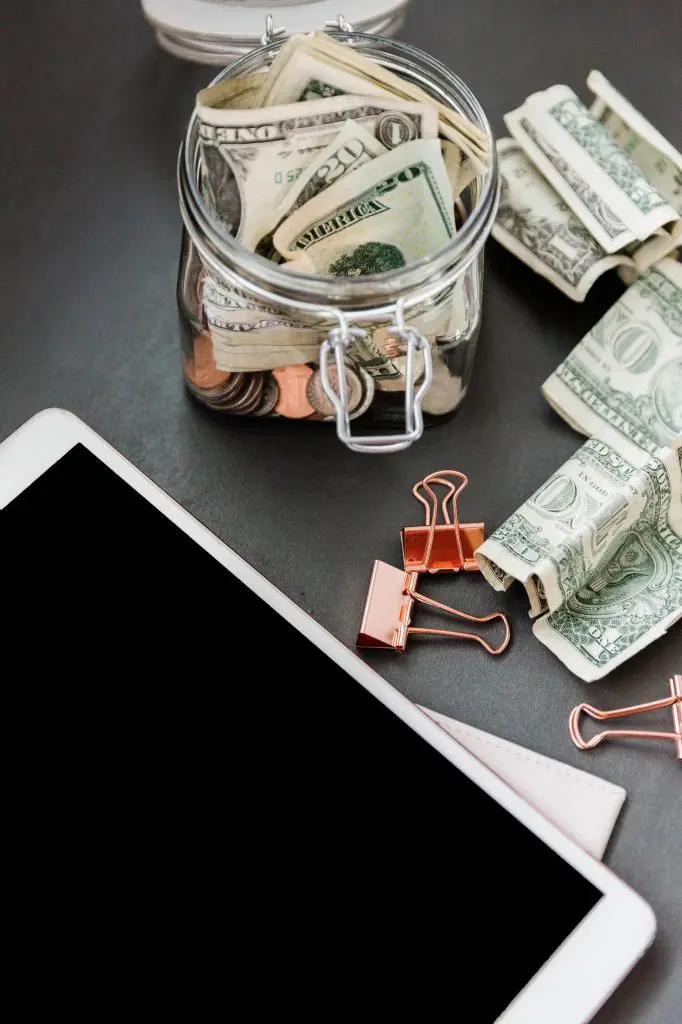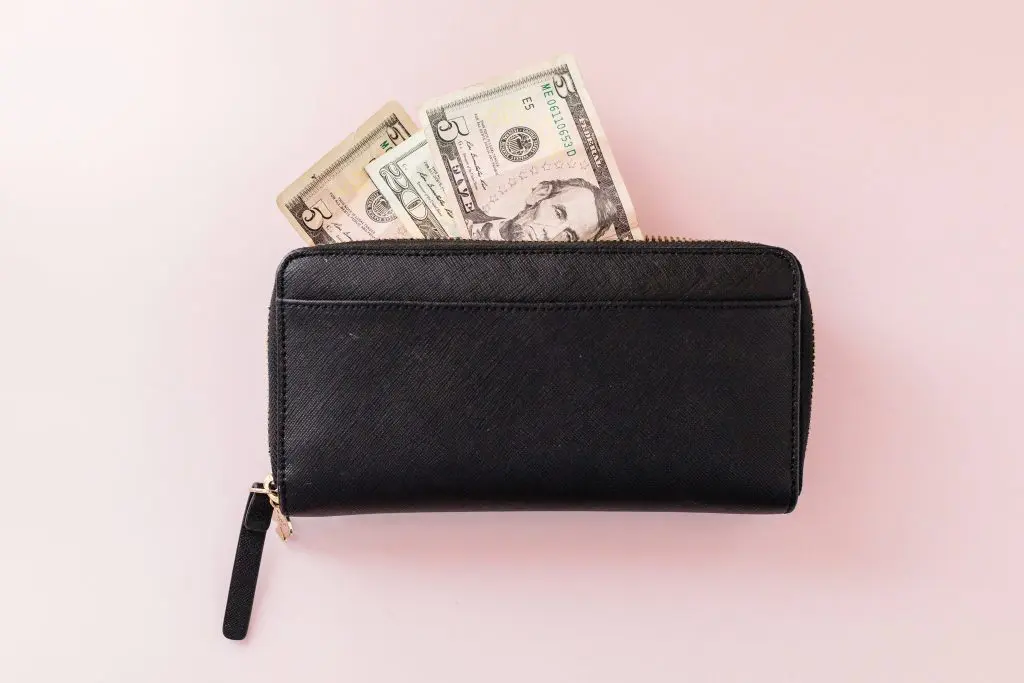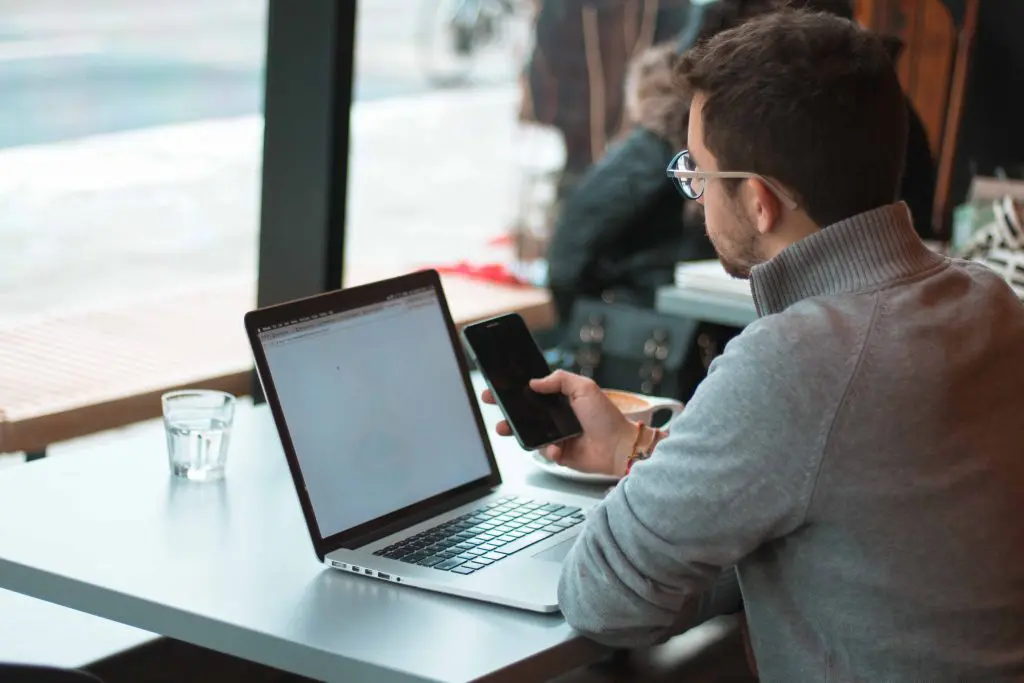From developing better travel habits to streamlining your tech, here are ten actionable budgeting tips for every freelancer and digital nomad.

Every freelancer and digital nomad lives life their own way. We all prioritise different outgoings, make different incomes, and live with different travel habits. But, regardless of how we travel, how we work, and how we live, there are certain budgeting tips that we can all learn from and apply to our own lives.
How to Save Money as Digital Nomad
Not all of these budgeting tips for digital nomads and freelancers will work for you, but some will. Some may seem obvious, but there are always different ways of looking at things we may think we already know. Take what you want from these budgeting tips, and use them to improve your own travel, work, and living habits.
1. Find the best free things to do first
As a digital nomad with the freedom to travel as much as you work, there’s a constant (and often irritating) temptation to live as hedonistically as possible. Every new city or country you arrive in is one that offers a whole new wealth of exciting opportunities to spend your money on: museums and galleries, shopping sprees, tours, local restaurants, and more.
Instead of giving in to the urge to throw your money down on every unique cultural activity that comes your way, take a step back instead.
Open your laptop or get on your phone and do some research about “free things to do in…” Travel blogs and magazines offer a bottomless well of articles and listicles that recommend free things to do in cities from New York to Tokyo.
This isn’t just one of the major budgeting tips, but also a great travel hack. More often than not, these free activities can lead to off-the-beaten-path activities and opportunities which you otherwise may not have.
Big cities often have English language tours led by locals and run by charities. They’re often free and will give you a far better view of the city than any rip-off tour bus would.
Approach exploring new cities and countries with a focus on keeping your wallet in your pocket and you will have to use your savvy to find new perspectives on travel and sightseeing.
Walking the streets, enjoying some urban photography, and hiking the nearby hills and forests: these are all free and immersive activities that will give you a new appreciation for the places you visit.
Read More: 9 Best Banks and Credit Cards for Digital Nomads
2. Use budgeting apps

This is one of the more simple and obvious, but often embarrassingly overlooked budgeting tips and travel hacks. When you’re a freelancer, you are in charge of your own finances.
Every penny you earn was sought after, pitched for, and worked hard for. When you’re a digital nomad, spending money on food is a daily occurrence because you may eat as you travel, rather than doing a weekly grocery shop.
Freelancers and digital nomads make, treat, and use money differently from other people. We don’t have salaries and we often don’t have a fixed rent or mortgage.
Our income and outgoings fluctuate every single day; no week is ever the same. And when your income is unpredictable — when you can go from feeling rich to feeling destitute in a single day — you need to utilise budgeting apps.
There are so many excellent budgeting apps out there, and we advise that you test and try out a few of them until you find the one that suits you.
The most popular budgeting app out there is Mint, and this is the one that most people, whatever their job or situation, swear by. It’s a smart app that updates on the fly and shows you a constant map of your spending as it happens.
If you’re taking budgeting seriously and you have a little money to spend, some budgeting apps do cost money but usually justify their cost. YNAB and EveryDollar are two popular examples of this, with YNAB costing $84 per year and EveryDollar costing $130.
There are also some wonderful free ones (like Mint) and CLEO, budgeting apps are often far better at budgeting than we humans are. It’s what they’re there for. We’ve reviewed nine apps below with pros and cons.
Read More: 9 Apps That Help You Budget Money (Pros and Cons)
3. Cook your own meals

As we’ve already mentioned, digital nomads are often in an awkward situation where we may be unable to do a large, weekly supermarket shopping trip; many of us are on the road almost constantly and, so, must eat on the go. This is very much not a cost-effective approach.
And so, if it’s within your power, getting a place of your own while you’re stationary (an Airbnb is almost always the best approach) and immediately getting into the habit of cooking your own meals is a lifesaving budgeting tactic.
Every digital nomad lives their life differently, so this is one of those budgeting tips that will certainly not apply to everyone. Speaking from personal experience, we travel slowly, moving from city to city every few months and housesitting in order to live rent-free.
This means that we can easily shop at the cheap local supermarkets and cook all of our meals at home. If you can live your digital nomad life this way, it is the best way to save money on food as a digital nomad.
Even if you live out of Airbnbs and hotels, you can still visit local supermarkets and buy a few cheap supplies for a week or a weekend, then cook them at home. Buying the ingredients for a sandwich from a budget supermarket is always cheaper than buying a pre-packaged sandwich once a day for a week.
So, when you get to your next hotel/hostel/Airbnb/housesit, go buy a bag of rice, a bag of pasta, a loaf of bread, a few cans of beans and tuna, some butter, a bag of salad, and a bag of apples.
You can prepare these things quickly and cheaply with barely any cooking utensils and it will save you a delightful amount of money. It’s another one of those obvious but invaluable budgeting tips for digital nomads.
Read More: How to Live Cheaply as a Digital Nomad (10 Must-Know Tips)
4. Set up a separate savings account
This is one of the budgeting tips that you can easily combine with utilising a budgeting app. By opening a savings account, you accomplish a few different things at once:
- Set money aside for flights and hotels
- Keep everything else for daily expenses
- Give yourself an motivating monthly money goal
- Alleviate the stress of saving
What we mean by this final point is that saving money, when you only have one single bank account, is something that pretty much happens within your head. You have to separate money into categories (rent, bills, food, travel etc) that all exist in your head.
By opening a savings account and agreeing with yourself on what that account is for (as well as how much must be put into it each week/month), you remove the stress of saving from your mind.
This is a common stress-reduction tip for many people, in fact. The tactic of alleviating mental stress by turning it into something physical. For example, if you have something important to do, just write it down. Many of us don’t think to do this; we keep it all in our heads instead.
But the stress of remembering or potentially forgetting is exhausting and upsetting. Instead, just write it down. Now you can forget about it and the stress will vanish along with it.
Savings accounts can provide the exact same effect on your mind. By having an account to put spare money/savings/flight money into, you no longer have to worry and stress about remembering what money belongs where. It’s already set aside for you.
Read More: What is Passive Income + 8 Ways to Get Started Right Now
5. Streamline your tech

Tech is a beautiful thing. Our phones, laptops, and tablets can do so much and we need to make sure we take full advantage of these things. We need to wring every drop of power and utility out of our tech in order to save money and space. By learning to rely on our tech even more, we can stop wasting space and money on other things.
Take reading for example. We are big bookworms; we often travel with books in our backpacks and suitcases. But we have come to rely on our Kindles and tablets, and even our laptops, for our reading pleasure. We have also switched to audiobooks, which can all live on our phones. A Kindle is a library in your pocket. A tablet is a library and a cinema and a games console.
If you only use your laptop for writing and surfing the internet, then trade it in and get a tablet with a detachable keyboard. Tablets are smaller, lighter, and thinner than laptops.
You can even attach a soft keyboard to your phone and produce all of your Google docs on there. It’s very reasonable to do everything a digital nomad needs with nothing but the latest smartphone and a few small peripherals.
Do you travel with a hefty camera? There are plenty of guides and tutorials out there that can teach you how to film YouTube videos using your phone instead.
Your phone is a professional-grade camera for capturing both images and footage. So sell your bulky camera and learn to rely on your phone in unexpected, exciting ways.
This isn’t just one of the great budgeting tips; it’s also a great tip for travelling lighter, downsizing, and living with less bulk and clutter. By trading in your larger tech and learning to rely on a phone and a tablet, you can travel with hand luggage only. Maybe throw away your suitcase and live more comfortably out of a backpack. This will then save you money on plane tickets as well.
Read More: Freelancer Tips – What to Do When a Client Won’t Pay You
6. Buy tickets in advance and shop around first
This is one of those budgeting tips which all comes down to good pre-planning and taking the time to slowly, carefully explore the internet with a view to saving as much money as possible.
If you are able, get into the habit of pre-planning your journeys far in advance, to the day, and with meticulous detail. If you can do this, start buying all of your travel tickets — from bus to plane — early and far in advance.
Plane and train tickets really are so much cheaper when bought in advance. If your travel plans are liable to change, you can still buy your plane tickets early and spend a little extra money on cancellation insurance. That extra money will still make a smaller total than the price of a last-minute plane ticket.
As for shopping around, most of us know the travel and budgeting hack that is leaning on Skyscanner. But also make sure to check the other flight search engines: Momondo, Kayak, Travelocity, Google Flights, and Expedia.
7. Learn to resist FOMO

FOMO (the fear of missing out) is a dangerous and powerful force these days. The cousin of jealousy; it can be felt when we stay inside on a Friday night while our friends go out. It can be felt when we still haven’t been to the cinema to catch the latest blockbuster. When we haven’t read the latest book or played the latest video game.
Mastering and conquering your own FOMO can be the key to saving money and budgeting easily. Just think: every time you resist spending money on something, just to keep up with the latest hype, you are better off. A night out is soon forgotten; the latest film is soon seen and replaced by the next one; but your money remains safe in your pocket, used later to create lasting travel memories.
As freelancers and digital nomads, our finances waver and change. They are unpredictable and often teeter on the edge of the unknown. When you spend money to keep up with the hype, you risk being out of pocket later when you need to buy an expensive flight, or when your next Airbnb costs more than you expected.
Avoid ever being in the position where you think, “If only I hadn’t bought that thing.” Prioritise more exciting things that you truly want and need, rather than things you only think you need because the combined powers of hype and FOMO have convinced you that you need them, and that they are important when they, ultimately, are not.
If you’re someone who often gives into hype and falls prey to FOMO, test out this tactic just once: wait for the next big thing to come along and resist the urge. Don’t go see the latest blockbuster when it comes around. Avoid the internet buzz. Wait a month. Soon enough, it will have been forgotten and nobody will care anymore. But you’ll still have the money you just saved. The world has moved on and you’re a little richer for it.
Read More: 20 Best Online Jobs For Freelancers And Digital Nomads
8. Consider service-based accommodation
We have talked about this in the past and will continue to talk about it until the end of time. On our travels, and running in circles with other digital nomads, we have met too many freelancers and digital nomads who spend far too much money on rent and accommodation, from Airbnbs to hotels and hostels. You don’t have to do this.
Service-based accommodation is, essentially, free accommodation in exchange for simply looking after the home in which you stay. More often than not, this maintenance includes watering plants, cleaning, taking in mail, taking out the trash, and the big one: taking care of their pets.
Signing up to sites like Trusted Housesitters transforms your entire life in an instant, opening up the door to rent-free accommodation as a digital nomad. If you work from home and take your office with you, well, take that office to someone else’s home, live there for a week or a month, take care of their dog or cat, and then move onto the next one. We have been doing this for years and barely spent a penny on hotels in-between (and never on Airbnbs).
This is the biggest and best budgeting tip and travel hack that we have to offer. Rent is everyone’s biggest expense, typically taking one third or even one half of the average person’s rent. To remove this expense entirely is to, effectively, double your income. You are suddenly keeping twice as much money as you’ve been able to keep until this point.
Couple this budgeting tip with opening a savings account. Put the money you once spend on rent and hotels into your savings account and you’ll almost instantly feel like a very rich person indeed.
9. Adopt a minimalist mindset

Several of the budgeting tips on this list are practical and physically actionable: downloading apps, opening accounts, cooking at home etc. Others are to do with how you think; how you see things; how you approach day-to-day life. Adopting a minimalist mindset straddles the line between these two kinds of budgeting tips.
Adopting a minimalist mindset begins in the mind: you need to think like a minimalist. The best way to begin is to read the right books. The best of these, in our own experience, is goodbye, things by Japanese minimalist Fumio Sasaki. This man is a true minimalist inspiration, and his book provides actionable tips to achieve minimalism both in the home and on your travels.
The practical approach to minimalism ties to a previous budgeting tip on this list: streamlining your tech. Buying tech that is small but powerful, and has many uses, allows you to discard so much else. Get rid of your library and get a Kindle. Get rid of your DVDs and get a tablet with a Netflix account. Rely on streaming services like Crunchyroll, Amazon Prime, and CuriosityStream.
This minimalism in travel can also be applied to your wardrobe. If you can swap out fashion for function, you can travel with much less: sturdy hiking boots can be worn anywhere, taking the place of three different kinds of shoes. The same can be said for thin but strong windbreakers.
By streamlining your tech and your wardrobe into only the most practical and multifunctional items, you can quickly learn to travel easily and unencumbered, with only a strong backpack rather than a hefty suitcase. This hand luggage tactic, again, saves you money on flights every time.
Read More: 10 Tips for Minimalist Packing
10. Set yourself simple budgeting goals
Budgeting apps, books on minimalism, and savings accounts will only carry you so far if you don’t set yourself reasonable goals that mesh well with your own personality and lifestyle. You know yourself best and you know what you can achieve. Not all of these budgeting tips will work for every digital nomad. That might be down to personality, work, lifestyle, or travel habits.
This means that, ultimately, you do need to set your own budgeting goals while keeping in mind your own habits. Only you know what your habits, vices, wants, and needs are. You know if you work better using apps or using good old-fashioned notepads and pens. You know how you like to travel and how you like to live. You just need to build budgeting goals around your life and your habits.
The budgeting goals that work best are the ones we set ourselves. How many of us have started following the latest fad diet, only to fall of the wagon quickly because that diet doesn’t mesh with our tastes, our time management, our general lifestyle?
The same is true of budgeting tips. You need to be realistic and set goals that apply to your personal lifestyle.
Just keep these questions in mind when setting your own budgeting goals:
- How much money do you want to save?
- Where do you usually spend your money?
- Where would you rather spend it?
- What bad habits do you have?
- What habits could you, realistically, get rid of?
- What changes can you make immediately?
- What changes can you work towards, and how long will that take?
- How much money do you want to have saved within a month, and how will you achieve that?
Read More: Best Personal Finance Books to Take Charge of Your Finances

